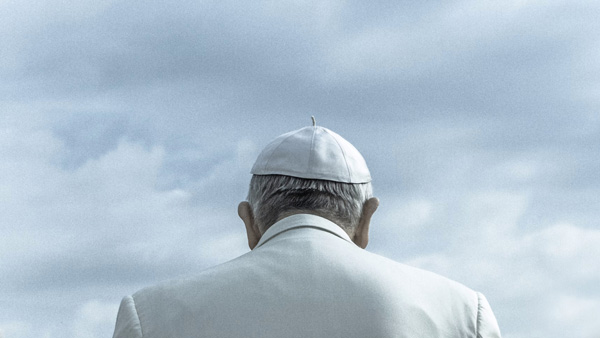Pope Francis dies at 88, the world mourns a transformative leader

[Photo of Pope Francis. Photo Credit to Unslpash]
Pope Francis, a globally influential figure and one of the most widely respected pontiffs of the modern era, passed away on Monday morning at the age of 88.
The Vatican confirmed his death just hours after he delivered his Easter message in St. Peter’s Square, marking the final public appearance of his pontificate.
Francis, born Jorge Mario Bergoglio in Buenos Aires, Argentina, was the first pope from Latin America and the first non-European pontiff in over 1,200 years.
He leaves behind a complex legacy, shaped by bold efforts to guide the Catholic Church toward inclusivity, compassion, and global engagement.
His final day included a private meeting with U.S. Vice President J.D. Vance, symbolizing his continued role as a global spiritual leader until the very end.
Flags across the Catholic world flew at half-staff.
Bells tolled from St. Peter’s Basilica as crowds gathered in silence to pay their respects.
In Argentina, his homeland, seven days of national mourning were declared.
Mass was celebrated at the cathedral in Buenos Aires where he once served as archbishop.
President Javier Milei, who once criticized the pope during his campaign, posted a message of respect and reflection, calling it “an honor to have known him in his goodness and wisdom.”
In the United States, tributes poured in across political and religious lines.
Kim Daniels of Georgetown University called it “fitting” that his death came just after Easter.
She said Francis “energized our faith” by urging the Church to focus on migrants, the poor, and unity across political and religious divides.
The White House issued a brief but solemn message on X: “Rest in Peace, Pope Francis,” accompanied by photos of the pope with President Trump and Vice President Vance.
A 2024 Pew Research Center survey revealed that 75% of American Catholics held a favorable view of Pope Francis.
That figure reflected a 15-point dip from his 2015 peak but still demonstrated broad support across demographics.
Notably, 9 in 10 Democratic-leaning Catholics viewed him positively, compared to 63% among Republicans.
Still, most perceived him as a force of change — a pastor who moved the Church in new directions.
Across Africa, tributes highlighted his commitment to justice and inclusion.
Kenya’s President William Ruto called him a “servant leader” known for his humility.
In Ethiopia, Prime Minister Abiy Ahmed praised his compassion and leadership.
In South Africa, President Cyril Ramaphosa described Francis as a man who “sought to unite humanity.”
The Catholic Church in Africa, long growing in numbers, now hopes the next pope may come from their continent.
The process of selecting a new pope will begin soon.
As tradition dictates, the conclave — a gathering of cardinal electors — will convene in the Sistine Chapel under tight secrecy.
Cardinal Kevin Farrell, the first American camerlengo, now oversees the Vatican’s transition.
Within the next 15 to 20 days, the conclave will vote until white smoke from the chapel signals that a new pope has been chosen.
During his 12-year papacy, Pope Francis sought out the world’s forgotten.
He often traveled to what he called the “periphery” — countries in Africa, Latin America, and Asia.
He visited refugee camps, walked alongside victims of war, and condemned economic systems that excluded the poor.
In 2016, he brought 12 Syrian refugees back to the Vatican from a camp in Greece.
He rejected luxurious papal apartments in favor of a modest guesthouse.
He washed the feet of prisoners and hosted homeless individuals at the Vatican.
His viral moments often captured profound emotional resonance: a silent blessing in an empty St. Peter’s Square during COVID, a tearful boy asking if his atheist father was in heaven, or his embrace of people with disabilities.
He also took strong stances that pushed the Vatican into new territory.
He criticized global capitalism, called for action on climate change, and emphasized dialogue over dogma.
He accepted — but didn’t endorse — civil unions for same-sex couples.
He met with imams, rabbis, and Orthodox patriarchs, making interfaith dialogue a core part of his mission.
Despite these great acts of humility, his papacy was not without controversy.
In Ukraine, his call in 2024 for a “white flag” to end war drew backlash from those who interpreted it as a call to surrender.
Still, President Volodymyr Zelenskyy posted a respectful tribute: “He knew how to give hope, ease suffering through prayer, and foster unity.”
Russia’s President Vladimir Putin also mourned his death, noting past dialogues and calling him “a great man.”
Though their relationship had frayed after Francis criticized Patriarch Kirill for supporting the war in Ukraine, Putin offered praise and condolences.
The Russian Orthodox Church will send a delegation to the funeral.
European leaders also honored Francis.
EU President Ursula von der Leyen said he “inspired millions far beyond the Catholic Church.”
Germany’s incoming chancellor Friedrich Merz highlighted his “tireless commitment to justice.”
Poland’s President Andrzej Duda called him “a great apostle of mercy.”
As Catholics and non-Catholics alike mourn the pope’s passing, attention is now turned to the next chapter.
For many, Francis was more than just a religious leader.
He was a global figure who called the Church to stand with the voiceless, to seek peace over power, and to never lose hope.
He constantly reminded the world, time and again, “We are all in the same boat.”

- Junyi Seo / Grade 11
- Seoul Academy

![THE HERALD STUDENT REPORTERS [US]](/assets/images/logo_student_us.png)
![THE HERALD STUDENT REPORTERS [Canada]](/assets/images/logo_student_ca.png)
